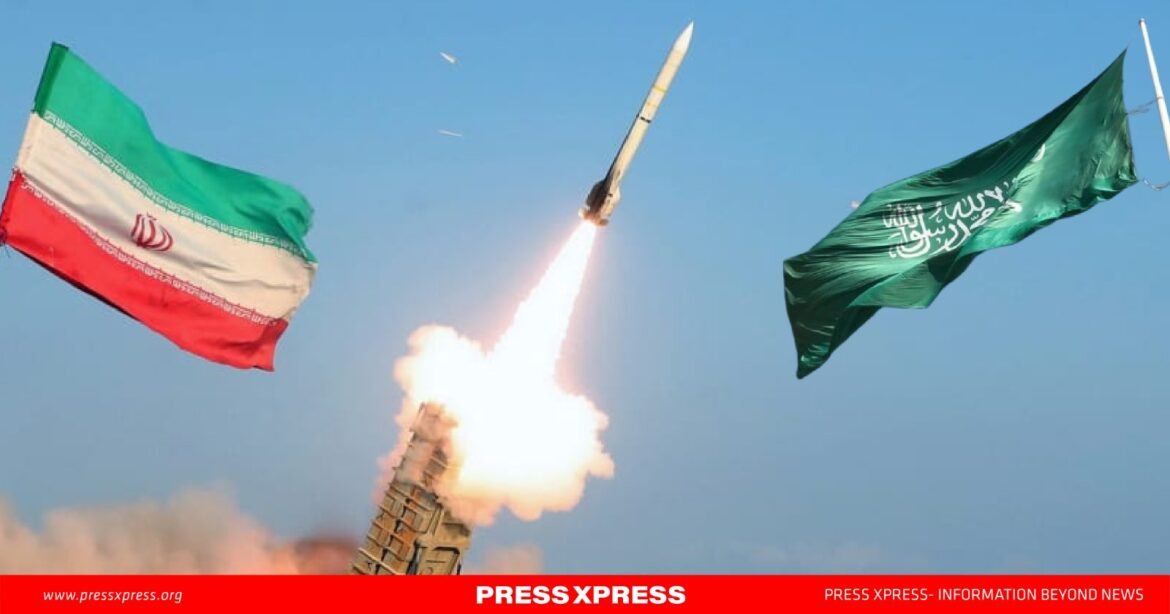As tensions escalate in the Middle East, Saudi Arabia finds itself at a critical crossroads, particularly after an Iranian missile strikes Israel. The Kingdom has long walked a delicate tightrope in its security and foreign policy, and this incident could prompt a recalibration of its approach to ensure its interests are safeguarded.
The Iranian missile strike on Israel represents not just a military event but a signal of changing dynamics in the region. Saudi Arabia, long a major player in the Middle East, now faces fresh challenges in maintaining its influence. A senior official noted that “security concerns have been mounting, and Riyadh cannot afford to stand by without a renewed strategy.”
In the past, the security aspects, – “Following three years of quiet dialogue, Riyadh and Tehran signed a roadmap for de-escalation in Beijing in March 2023. While this detente has not yet led to long-term conflict resolutions, it remains one of the few diplomatic paths for managing regional tensions, even amid the wider cycle unleashed by the Gaza crisis.”
Saudi Arabia needs to come up with more constructive methods and why has this new path been chosen? Because, the Kingdom has relied on a mix of alliances, diplomatic engagements, and defense partnerships, primarily with the United States, to ensure its security. But as the region grows more complex, particularly with Iran’s increasing assertiveness, Riyadh may need to consider new avenues to bolster its defenses.
“We’ve seen this coming for a while,” said a regional expert. “Saudi Arabia might have to diversify its alliances to include not only Western powers but also regional players who share similar concerns over Iran’s influence.”
On the same field, it is interesting to watch that while relations between Saudi Arabia and Israel have historically been fraught, there has been a recent thaw. With both countries sharing concerns over Iran, Saudi Arabia might adopt a more openly cooperative stance toward Israel. This would represent a significant shift, not just in Riyadh’s foreign policy, but in the broader regional order. But the people may not like this policy over Israel’s atrocities in Gaza and Beirut.
Again to mention, Saudi Arabia’s longstanding relationship with the United States remains a cornerstone of its defense strategy. Yet, there have been questions recently about the reliability of this partnership. With the U.S. increasingly focusing on its domestic issues and a pivot towards Asia, Riyadh may need to evaluate the extent to which it can continue to rely on American support.
Saudi officials have publicly expressed their confidence in the alliance, but there is a recognition that the Kingdom might need to bolster its self-reliance. As one government insider put it, “The U.S. will always be a key partner, but we must also prepare to defend our interests independently.”
As Saudi Arabia contemplates its next moves, it faces a landscape filled with uncertainties. Iran’s missile strike serves as a reminder that the status quo is fragile. A recalibration of its security policy could provide Riyadh with the tools to navigate these turbulent times. It is also to say, that European states should now welcome these steps rather than a means for Iran to evade Western pressure.
However, any new strategy will require careful consideration and a balanced approach. On this new orchestra, on a good note, Riyadh now has increasing influence and economic leverage in Tehran to help put the brakes on escalation.


